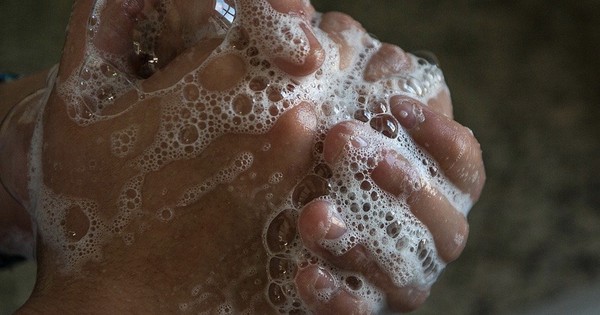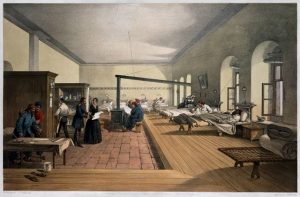Poor toilet hygiene spreads more E.coli than raw meat

In other words, always wash your hands when you’re done in the bathroom.
If you had to skip washing your hands after going to the bathroom or handling raw chicken, what would you choose? I fear that most people would opt for the former, as it somehow seems less icky than leaving raw chicken residue on your skin; but new science out of the University of Anglia in England says, ‘No! The toilet is worse!’
A report published earlier this fall in The Lancet Infectious Diseases explains that you’re more likely to contract the worst kind of antibiotic-resistant E.coli from poor toilet hygiene than you are from contaminated food. There are different strains of E.coli, some of which reside in the human gut without causing harm, while others can cause food poisoning and urinary tract infections. The worst kind infect the bloodstream and cannot be treated with antibiotics; these are known as strains with ‘Extended Spectrum Beta-Lactamases’, or ESBL-E.coli.
Until now it wasn’t clear how the antibiotic-resistant strains were spreading, so scientists took a closer look at the genomes of resistant E.coli from multiple sources across the UK. These included samples from human bloodstream infections, human faeces, human sewage, animal slurry and meat including beef, pork and chicken, and fruit and salad (via Eurekalert).
What they found is that “resistant E. coli strains from meat, principally chicken, cattle and animal slurry, were largely different to those infecting humans… In short, there was little crossover of ESBL-E. coli from animals to humans.” This doesn’t mean that supermarket meat isn’t rife with E.coli; it most certainly is. As lead study author Prof. David Livermore explained in a press release,
“We found ESBL-E. coli in 65 percent of retail chicken samples – ranging from just over 40 percent in Scotland to over 80 percent in Northwest England. But the strains of resistant E. coli, were almost entirely different from the types found in human faeces, sewage and bloodstream infections.”
What this means is that there’s a fairly low E.coli transmission rate between humans, cattle, and poultry (although that doesn’t mean we should get lax with food handling practices). In Livermore’s words,
“The great majority of strains of ESBL-E. coli causing human infections aren’t coming from eating chicken, or anything else in the food chain. Rather – and unpalatably – the likeliest route of transmission for ESBL-E. coli is directly from human to human, with faecal particles from one person reaching the mouth of another.”
All this is to say, wash your hands every single time you use the toilet. It’s annoying to have to repeat it over and over again, but clearly there’s still much room for improvement. It’s important to use lots of soap and to rub vigorously to dislodge the bacteria, then rinse thoroughly to get rid of them. Nails should be kept short and clean, hand towels should be changed regularly, and if you don’t have access to soap and water, carry some hand sanitizer for emergencies.
And how about you commit to washing your hands after both the toilet and handling raw meat? That choice I outlined at the beginning was only hypothetical… there’s more than enough soap to go around!
In other words, always wash your hands when you’re done in the bathroom.
Please enable JavaScript to view the comments.







